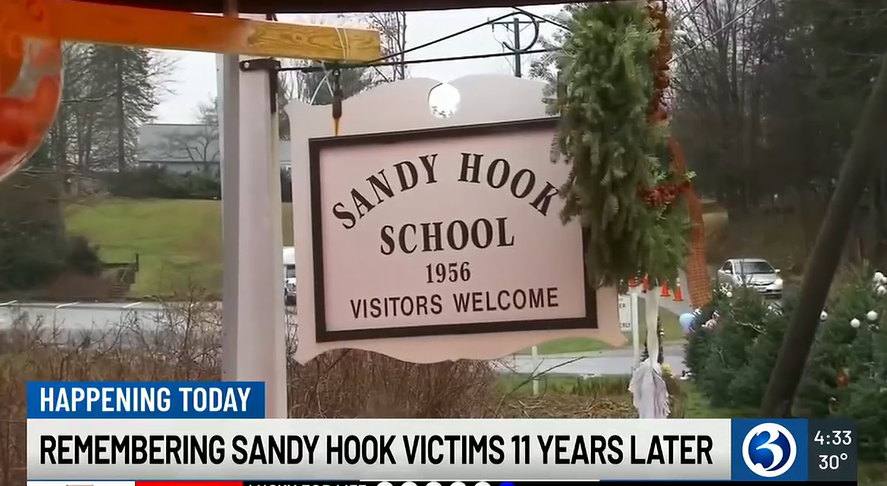‘Extraordinarily Sorry’: Seven Senators Tell The Washington Post they Regret Blocking Gun Reform After Sandy Hook

The Washington Post on Wednesday published a devastating profile of seven U.S. Senators reflecting on their votes following the mass shooting at Sandy Hook Elementary School in 2012. The Post spoke to the senators – six Democrats and one independent – all of whom voted against gun reform measures after the deadly shooting, but have now had a change of heart.
The article by Peter Wallsten and Paul Kane begins with a lobbyist recalling then Sen. Heidi Heitkamp (D-ND) meeting with Sandy Hook parents in her new office, just weeks after taking office.
“She would not look at me,” recalled Francine Wheeler, whose six-year-old child was among the 26 people shot to death at Sandy Hook – including 20 young children.
Heitkamp was “defensive, unkind, and not interested in helping or listening to the stories of our loved ones,” added Wheeler of the meeting, in which she petitioned the North Dakota senator to vote for expanding the federal background check system. A lobbyist in the meeting with Wheeler and Heitkamp recalled “sitting at the table with her head down” after the meeting and another political consultant told the Post she heard the senator “break out into sobs” as they left the room.
Heitkamp told the Post she regretted not working to help the families achieve their goals.
“Not that I agree with the exact language of these bills, but it was my obligation looking backwards to provide leadership, even though I was there a hot minute, to make those bills better and I didn’t do that. My activity was passive, not active, in searching for a solution, and that I regret,” the former senator said, adding:
Heitkamp said she did not recall the meeting with Wheeler but was “extraordinarily sorry” for leaving families with the sense that she didn’t care about the children who were killed or the experiences of their grieving parents.
“If any person was left with the impression that I had anything other than the most supreme sympathy and just hurt, that is a failure on my part, and I couldn’t apologize more,” she said.
The Post also spoke with current Sens. Michael Bennet (D-CO), Martin Heinrich (D-NM), Angus King (I-MN), and Mark Warner (D-VA) about their changed views on gun control. Ex-senators Mark Begich (D-AK) and Mark Udall (D-CO) also expressed their regrets over their votes following Sandy Hook.
Udall told the Post that if he were “in a time machine and going back” he would tell himself “This is going to get worse and worse. More and more people are going to be deeply affected by this.” Udall voted against a new assault weapons ban the spring after the shooting and told the Post if he could do it all over again he would “take the political heat” and vote to pass the ban. Ex-Sen. Begich added that looking back he wishes he “would have pushed the envelope” in 2013 and supported the reform measures, saying he didn’t do more because of “backroom politics” at the time.
Sen. Heinrich said he was convinced to support to gun reform by his son, who joined protests after the Parkland, Florida massacre. “When your kid tells you you’re wrong with that much conviction, you need to stop and think about it,” he concluded, adding that after voting against bills to ban assault weapons in 2013, he too would take that vote today.
Sen. Warner also cited his children, his three daughters, for his political evolution on the issue, which led to an October 2018 op-ed in which he embraced renewing the assault weapons ban – a major reversal. Sens. Bennett and King are now co-sponsoring a bill to regulate the sales of guns based on their lethality. The bill is co-sponsored by Heinrich and Sen. Mark Kelly (D-AZ), whose wife ex-Rep. Gabby Giffords was shot in the head in 2011 while at an event meeting constituents in Tucson, Arizona. King told the Post that the October mass shooting in Maine that killed 18 people “solidified my view that this is something we have to do.”
Wallsten and Kane highlight the impact Sandy Hook has had on U.S. politics and how the inability to pass substantive gun reform in the wake of such a horrific event shook the nation and “continues to haunt many who held power at the time.” The article quotes former President Barack Obama speaking at the 10-year commemoration of the shooting, saying, that Congress’s failure to pass an assault weapons ban in the spring of 2013 was “perhaps the most bitter disappointment of my time in office, the closest I came to being cynical.”
Read the full article here.





Comments
↓ Scroll down for comments ↓